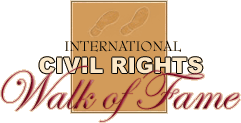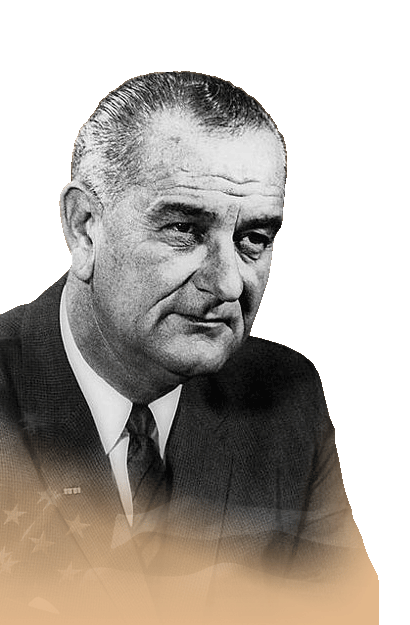 |
 |
 |
 |


| |||||||||
|
As the 36th President of the United States (1963-1969), Lyndon Johnson championed groundbreaking civil rights legislation. Vice President Johnson became President on November 22, 1963, just hours after the assassination of John F. Kennedy. He immediately carried out the civil rights agenda set by the slain president and created his own complementary plan for a "Great Society." Johnson signed the Civil Rights Act of 1964, which protected voting rights, guaranteed access to public accommodations and allowed the withholding of federal funds from programs that had discriminatory practices. In August 1964 Johnson launched a "War on Poverty" by signing the Economic Opportunity Act, which established the Office of Economic Opportunity to oversee a number of educational, training, and employment programs. Johnson's vision for a "Great Society" included more safeguards for civil and voting rights, funding for education, programs for urban renewal, Medicare, crime prevention and consumer protection. Johnson believed that his greatest accomplishment as President of the United States was ensuring the passage of the Voting Rights Act of 1965. That law authorized the federal government to step in to safeguard the right of African Americans to register to vote and cast their ballots. Lyndon Baines Johnson was the first child of Sam Ealy Johnson, Jr., a Texas state representative, and Rebekah Baines Johnson. Lyndon spent much of his childhood in Johnson City, Texas, a town settled by his ancestors. Lyndon started school at four and graduated from Johnson City High School at age 15. In 1927, he entered Southwest Texas State Teachers College (now Texas State University-San Marcos) working as a janitor and office helper to pay college expenses. Though he dropped out to teach Mexican children in Cotulla, Texas, he returned to earn his degree in 1930. Johnson worked as an aide to a Texas congressman (1932-1935), and then accepted an appointment by President Franklin D. Roosevelt as the Texas Director of the National Youth Administration (1935-1937). He met and married Claudia Alta "Lady Bird" Taylor in 1934. The couple had two daughters. In 1937 Johnson, a democrat, won a seat in the U.S. Congress. He interrupted his first term at the outbreak of World War II to serve in the U.S. Navy, where he earned a Silver Star. As a U.S. Senator (1948-1960), Johnson worked for the passage of the Civil Rights Act of 1957. In the 1964 presidential election, Johnson soundly defeated conservative Republican Barry Goldwater. Though unpopular for his Vietnam War policies, President Johnson will always be remembered for his war on racism and poverty. The Lyndon B. Johnson Library and Museum near Stonewall, Texas preserves the president's legacy. |